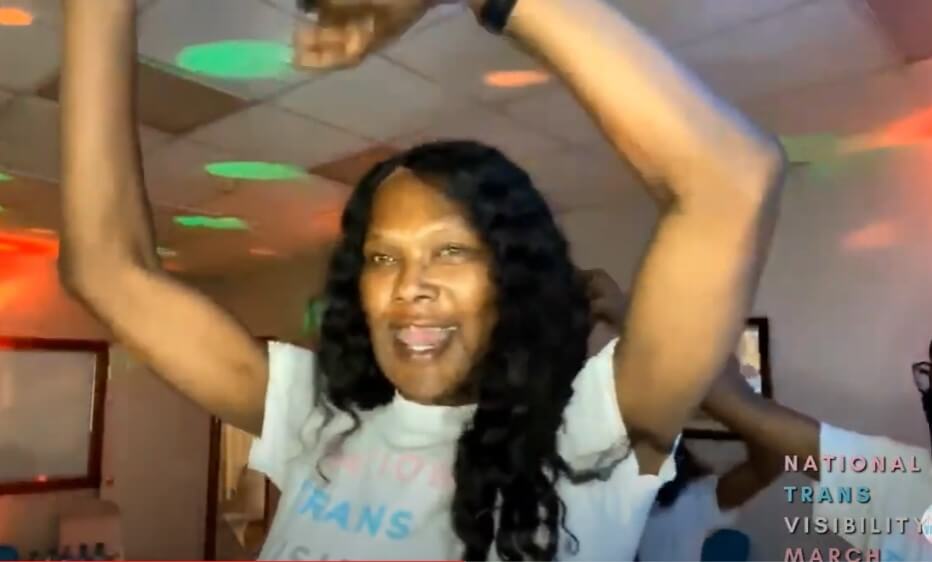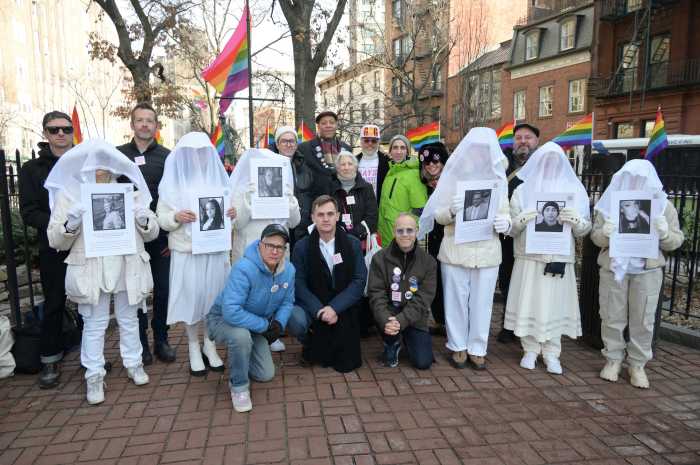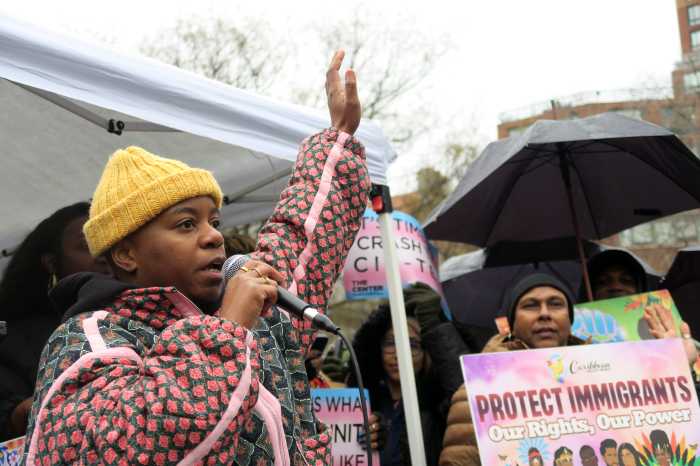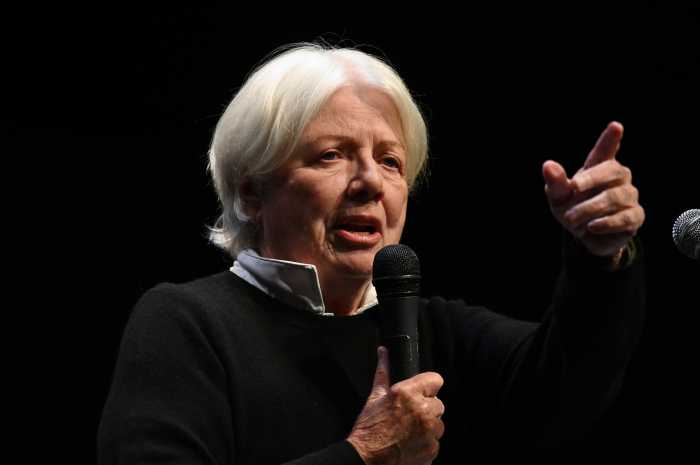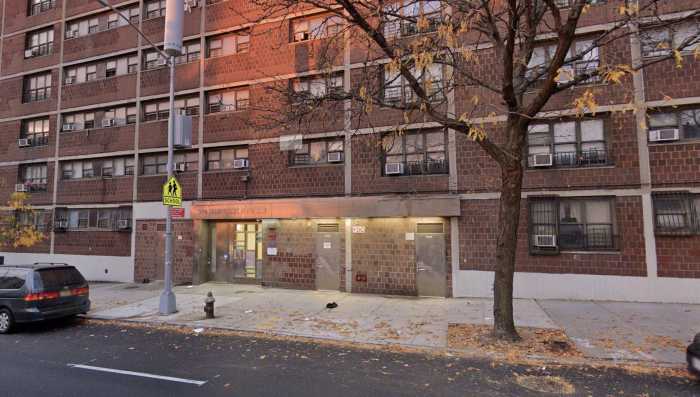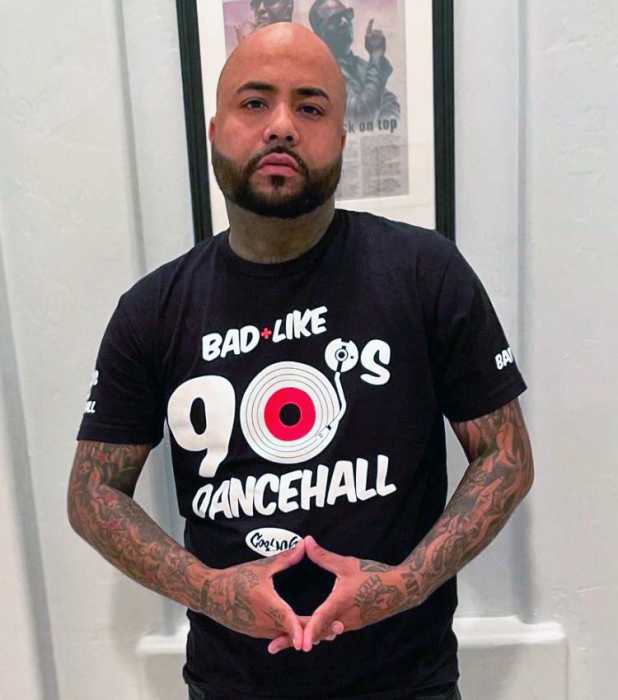During a virtual edition of the second annual National Trans Visibility March that featured a tour of trans-inclusive organizations, two messages were reiterated throughout the broadcast: The urgent need to protect trans lives and the importance of voting up and down the ballot in this year’s election.
Early in the hours-long October 3 broadcast, viewers were presented with a series of images and messages paying tribute to many transgender and non-binary individuals, many of them people of color, who lost their lives this year. Faith leaders, community leaders, and others invoked the persistent trend of violence targeting Black transgender individuals during a broadcast that included voices spanning from across the nation.
Hope Giselle, the host and communications coordinator of the march, led a group on a bus tour throughout Washington, DC, where folks made pit stops for interviews with individuals such as Addison Moore, the drop-in center program manager at Smyal, an organization that serves LGBTQ youth in Washington. Moore noted that the group has worked diligently during the coronavirus pandemic to continue supporting local youth through virtual options.
“Right now it’s especially important to adapt to young people’s needs,” Moore said. “We want to continue to make sure these spaces we are creating are going to fulfill the needs of young people.”
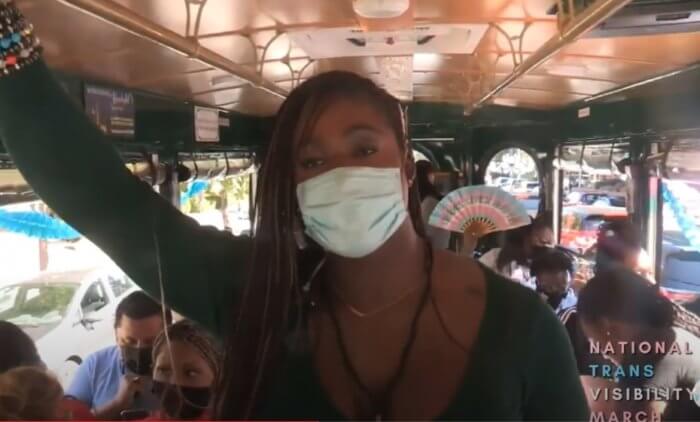
Groups from outside of Washington participated virtually, such as those representing the Unspoken Treasure Society’s chapter in Gainesville, Florida, where the wide-ranging service provider’s offerings include HIV/ AIDS testing and educational classes geared towards prevention efforts.
“What we do here is provide safe spaces for trans women and men of color,” said Regina Livingston, the group’s founder and CEO. “We provide COVID relief, temporary housing, housing referrals, counseling… We just go to each area and handle whatever resources are needed in each area.”
Another contingent that joined virtually was Us Helping Us People Into Living, Inc., an organization dedicated to reducing the impact of HIV/ AIDS in communities of color. The group, which has one office in Washington and another one in Maryland, offers services such as HIV and STI testing, case management, substance use therapy, insurance navigation, and personal care kits.
A spotlight was similarly placed on organizations delivering crucial health services in other areas. The Nationz Foundation’s contingent tuned in from Richmond, Virginia, where the organization complements its HIV/ AIDS and STI services with an emergency housing space and programs connecting individuals to care.
“This trans visibility march shows we are thriving, we are moving forward, we are empowered, and we will not be erased,” said Zakia K. McKensey, the organization’s founder. “Please go out and vote; it is so important. There are so many policies in place that are discriminating and taking rights away from us, and that Black trans vote is important.”
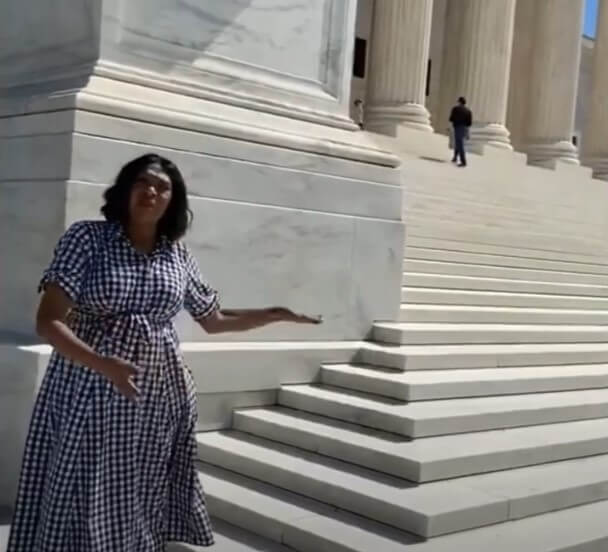
That emphasis on voting was further echoed by Human Rights Campaign President Alphonso David, who addressed the imminent election — now less than a month away, with voting already underway in certain states — and said the need for change is even more pressing in the face of systemic racism, the coronavirus death toll, and attacks on Black transgender individuals.
“Vote not just for the top of the ticket. You’re voting for your senators, your representatives, your city councilmembers,” David said during a speech that was often interrupted by technical difficulties. David also emphasized that voters are making choices that will ultimately impact the fate of non-discrimination protections in many states and shape the future of our healthcare system. He encouraged folks to tap into their respective social networks and ask friends and loved ones to step up.
“I know so many of us feel tired and discouraged, but I find strength and hope in the amazing fighters and changemakers that are here with us today, and I find strength in those who were fighting with us before,” David added. “Because our history tells us that we can do this.”
The election remained in focus during the conclusion of the march when Giselle and others on the bus made their final stop at the steps of the US Supreme Court just one week after President Donald Trump nominated a right-wing conservative, Amy Coney Barrett, to replace the late Ruth Bader Ginsburg on the high court.
Marissa Miller, the founder of the National Trans Visibility March, stood in front of the court and pointed directly at it and made concluding remarks about the importance of voting.
“We’ve done everything that we need to do, but it’s here that makes a difference,” Miller said. “If we don’t come out on November 3 and vote, then none of this makes a difference.”
Watch the full broadcast here.
To sign up for the Gay City News email newsletter, visit gaycitynews.com/newsletter.

